Gardening in Forest Lake: Cultivating Green Spaces in Your Community
Introduction to Gardening in Forest Lake
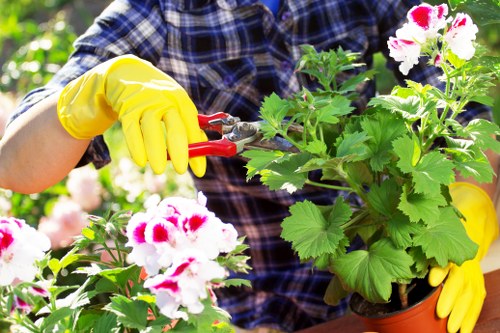
Welcome to the vibrant world of gardening in Forest Lake! Whether you’re a seasoned gardener or just starting out, Forest Lake offers a unique environment that supports a wide variety of plants and gardening styles. Nestled amidst beautiful landscapes, Forest Lake provides the perfect backdrop for cultivating lush gardens, vibrant flower beds, and thriving vegetable patches.
The community of Forest Lake is not just about its picturesque scenery; it’s also about the people who take pride in maintaining and enhancing their green spaces. Gardening here is more than a hobby—it’s a way of life that brings neighbors together and fosters a sense of community.
In this article, we’ll explore the essentials of gardening in Forest Lake, from choosing the right plants and tools to understanding the local climate and soil conditions. Whether you’re looking to transform your backyard or contribute to a community garden, this guide has something for everyone.
Understanding the Local Climate
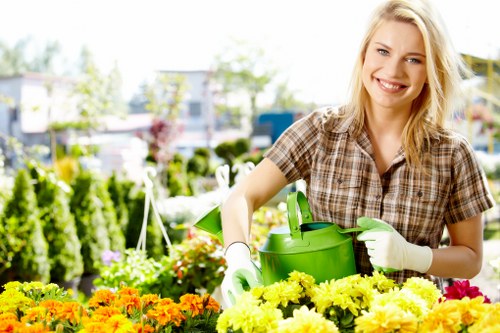
Forest Lake enjoys a temperate climate with distinct seasons, which plays a crucial role in gardening success. The area experiences warm summers, mild springs and falls, and cold winters, each bringing its own set of challenges and opportunities for gardeners.
During the spring, the region sees a burst of new growth, making it an ideal time for planting perennials, vegetables, and annuals. Summer offers plenty of sunshine, perfect for growing heat-loving plants and maintaining your garden’s vibrancy. Fall is the time to prepare for winter, focusing on soil enrichment and planting cover crops, while winter provides a period of rest and planning for the next gardening season.
Understanding these seasonal changes is essential for selecting the right plants and implementing effective gardening strategies. By aligning your gardening activities with the local climate, you can ensure a thriving and resilient garden year-round.
Soil Preparation and Care
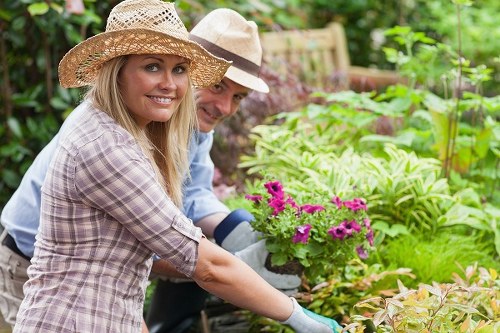
Healthy soil is the foundation of a successful garden. In Forest Lake, the soil varies from sandy loam to clay, each requiring specific care and preparation. Conducting a soil test is the first step to determine its pH level and nutrient content. This information will guide you in amending the soil to create an optimal environment for plant growth.
Adding organic matter like compost or well-rotted manure can improve soil structure, enhance fertility, and promote beneficial microbial activity. Mulching is another essential practice that helps retain moisture, suppress weeds, and regulate soil temperature.
Regular soil maintenance, including aeration and rotation, will keep your garden beds healthy and productive. By investing time in soil care, you set the stage for a lush and bountiful garden.
Choosing the Right Plants
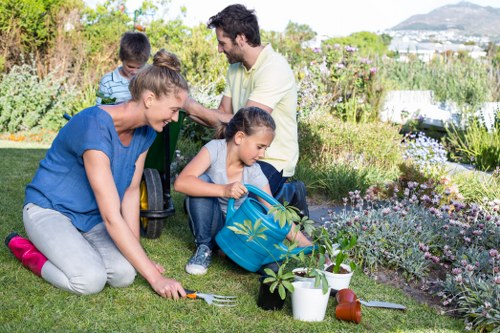
Selecting plants that thrive in Forest Lake’s climate is key to a successful garden. Consider native species that are well-adapted to the local environment, as they require less maintenance and are more resistant to pests and diseases.
Flowering Plants: Roses, daisies, and daylilies add color and beauty to any garden. They are relatively easy to care for and can bloom throughout the growing season.
Vegetables: Tomatoes, peppers, lettuce, and carrots are popular choices for vegetable gardens. These plants benefit from the fertile soil and ample sunlight that Forest Lake provides.
Herbs: Basil, rosemary, thyme, and mint are great additions to any garden. They not only enhance the culinary value of your kitchen but also attract beneficial insects.
By carefully selecting plants that match your garden’s conditions, you can ensure a thriving and diverse garden that meets your aesthetic and practical needs.
Gardening Tools and Equipment
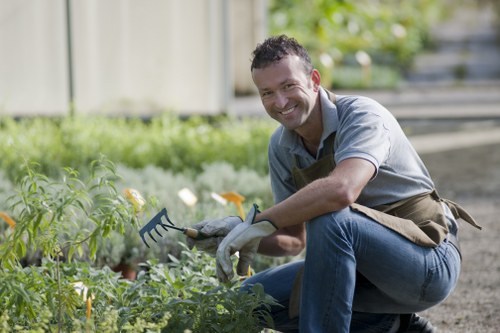
Having the right tools is essential for efficient and enjoyable gardening in Forest Lake. Here’s a list of must-have tools for any gardener:
- Shovel and Spade: For digging, planting, and moving soil.
- Pruners and Shears: Essential for trimming and maintaining plants.
- Garden Fork: Useful for turning over soil and aerating garden beds.
- Watering Can or Hose: To ensure your plants receive adequate moisture.
- Gloves: Protect your hands while working in the garden.
- Trowel: Ideal for small digging tasks and transplanting seedlings.
Investing in quality gardening tools will not only make your gardening tasks easier but also enhance the overall health and appearance of your garden.
Organic Gardening Practices
Embracing organic gardening in Forest Lake can lead to healthier plants and a more sustainable environment. Here are some key practices to consider:
- Composting: Create your own compost from kitchen scraps and garden waste to enrich your soil naturally.
- Natural Pest Control: Use beneficial insects like ladybugs and lacewings to manage pests, reducing the need for chemical pesticides.
- Crop Rotation: Rotate different plant families each season to prevent soil depletion and reduce pest buildup.
- Mulching: Apply organic mulches such as straw or wood chips to conserve moisture and improve soil structure.
- Rainwater Harvesting: Collect rainwater to use for irrigation, promoting water conservation.
By adopting these organic practices, you contribute to a healthier ecosystem and enjoy a more resilient and productive garden.
Seasonal Gardening Tips
Gardening in Forest Lake requires adapting to the changing seasons. Here are some tips to help you succeed throughout the year:
- Spring: Start planting early-season vegetables and perennials. Prepare your garden beds by adding compost and mulch.
- Summer: Focus on maintaining moisture levels and preventing heat stress. Prune and deadhead flowers to encourage continuous blooming.
- Fall: Harvest remaining crops and plant cover crops to protect the soil. Begin planning for next year’s garden.
- Winter: Protect sensitive plants with mulch or frost covers. Use this time to prune trees and shrubs and organize your gardening tools.
By following these seasonal guidelines, you can ensure that your garden remains healthy and productive all year long.
Community Gardening in Forest Lake
Community gardens are thriving in Forest Lake, providing residents with shared spaces to grow plants, connect with neighbors, and learn new gardening techniques. Participating in a community garden offers numerous benefits:
- Social Interaction: Meet like-minded individuals and build strong community ties.
- Resource Sharing: Access tools, seeds, and expertise that might be otherwise unavailable.
- Educational Opportunities: Learn from workshops and experienced gardeners to enhance your skills.
- Environmental Impact: Contribute to green spaces that improve air quality and provide habitats for local wildlife.
Joining a community garden is a fantastic way to engage with the Forest Lake community while enjoying the numerous rewards of gardening.
Pest and Disease Management
Maintaining a healthy garden involves managing pests and diseases effectively. Here are some strategies tailored for Forest Lake gardens:
- Crop Rotation: Prevents the buildup of pests and diseases specific to certain plant families.
- Companion Planting: Planting certain species together can deter pests and promote growth.
- Natural Predators: Encourage beneficial insects like bees, ladybugs, and spiders to control pest populations.
- Organic Pesticides: Use neem oil, insecticidal soaps, and other organic solutions to manage infestations without harming the environment.
- Proper Sanitation: Remove diseased plants and debris to reduce the chances of pest and disease spread.
Implementing these pest and disease management techniques will help keep your Forest Lake garden healthy and thriving.
Irrigation and Water Management
Effective water management is crucial for a successful garden in Forest Lake. Here are some tips to optimize irrigation:
- Drip Irrigation: Delivers water directly to the plant roots, reducing evaporation and water waste.
- Rain Barrels: Collect rainwater to use for irrigation, promoting sustainability and reducing water bills.
- Mulching: Helps retain soil moisture, reducing the need for frequent watering.
- Scheduling: Water your garden early in the morning or late in the evening to minimize evaporation.
- Soil Testing: Regularly check soil moisture levels to ensure plants receive adequate hydration without overwatering.
By implementing these irrigation strategies, you can maintain a healthy and water-efficient garden in Forest Lake.
Gardening for All Ages
Gardening in Forest Lake is an activity that can be enjoyed by people of all ages. From young children learning about plants to seniors maintaining a serene garden space, gardening offers numerous benefits:
- Educational: Teaching children about plant biology, ecology, and responsibility.
- Physical Activity: Gardening provides mild to moderate exercise, promoting physical health.
- Mental Health: Tending to plants reduces stress, improves mood, and enhances overall well-being.
- Social Engagement: Gardens can serve as community hubs where people connect and collaborate.
By creating inclusive gardening spaces, Forest Lake fosters a community where everyone can participate and benefit from the joys of gardening.
Gardening Events and Workshops
Forest Lake hosts a variety of gardening events and workshops throughout the year, providing opportunities for gardeners to learn and grow:
- Planting Workshops: Learn the basics of planting and caring for different types of plants.
- Composting Classes: Discover how to create and maintain a compost system for your garden.
- Pest Management Seminars: Gain insights into effective and organic pest control methods.
- Garden Tours: Explore beautiful gardens in Forest Lake and get inspired by creative landscaping ideas.
- Seasonal Festivals: Celebrate the changing seasons with garden displays, competitions, and community gatherings.
Participating in these events can enhance your gardening knowledge, connect you with fellow enthusiasts, and make your gardening experience in Forest Lake even more rewarding.
Gardening Resources in Forest Lake
Access to the right resources can make all the difference in your gardening journey. Here are some valuable resources available to Forest Lake gardeners:
- Local Nurseries: Offer a wide variety of plants, seeds, and gardening supplies tailored to the region's climate.
- Extension Services: Provide expert advice on soil health, pest management, and plant selection.
- Libraries: Stock gardening books, magazines, and online resources to help you expand your knowledge.
- Online Forums: Connect with other gardeners, share tips, and seek advice on various gardening topics.
- Gardening Clubs: Join local clubs to participate in community projects and gain access to exclusive gardening events.
Utilizing these resources can support your gardening endeavors and help you overcome any challenges you might encounter.
10-15 Nearby Areas to Forest Lake
[p class="intro"] Forest Lake is surrounded by several charming areas, each offering unique features for gardening enthusiasts. Here are the 15 closest areas to Forest Lake:- Duluth: Just 15 miles away, Duluth boasts extensive botanical gardens and gardening centers.
- Superior: Located 10 miles from Forest Lake, Superior is known for its community garden projects and green spaces.
- St. Louis Park: 12 miles away, offering numerous parks and gardening workshops.
- Maple Grove: 14 miles from Forest Lake, features well-maintained public gardens and nurseries.
- Bloomington: 18 miles away, home to large garden centers and annual gardening expos.
- Minnetonka: 16 miles from Forest Lake, known for its sustainable gardening initiatives.
- Plymouth: 20 miles away, offers diverse gardening opportunities and resources.
- Eden Prairie: 22 miles from Forest Lake, featuring extensive parklands and gardening clubs.
- Stillwater: 25 miles away, famous for its historic gardens and floral displays.
- Woodbury: 17 miles from Forest Lake, providing numerous community garden plots.
- Richfield: 19 miles away, hosts regular gardening events and plant sales.
- Minneapolis: 24 miles from Forest Lake, offers a vast array of gardening centers and public gardens.
- Edina: 21 miles away, known for its luxurious garden designs and landscaping services.
- Plymouth: 20 miles from Forest Lake, offers diverse gardening opportunities and resources.
- Kenneka: 15 miles away, featuring community-driven gardening initiatives and support.
Each of these areas provides unique gardening services, resources, and opportunities, making them excellent destinations for expanding your gardening horizons.
Conclusion
Gardening in Forest Lake is a rewarding endeavor that offers numerous benefits, from enhancing the beauty of your surroundings to promoting a healthy lifestyle. By understanding the local climate, preparing your soil, choosing the right plants, and utilizing available resources, you can create a thriving garden that reflects your personal style and contributes to the community.
Whether you’re tending to a small balcony garden or engaging in large-scale landscaping projects, Forest Lake provides the ideal environment and support to help you succeed. Embrace the art of gardening and transform your outdoor spaces into green paradises.
Ready to start your gardening journey in Forest Lake? Contact us today to get expert advice and premium gardening services tailored to your needs. Book your service now and cultivate the garden of your dreams!
